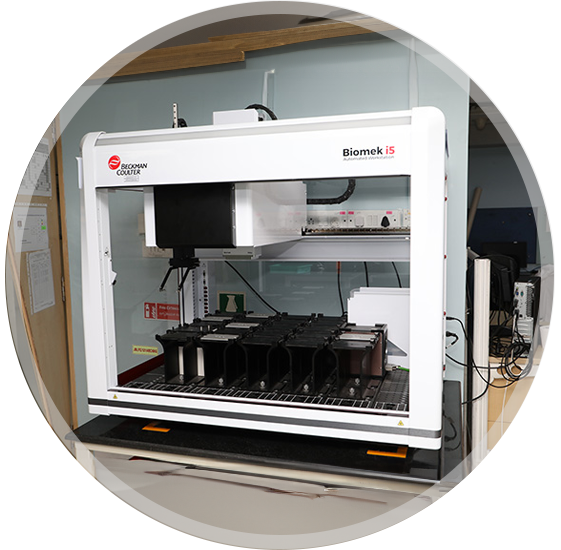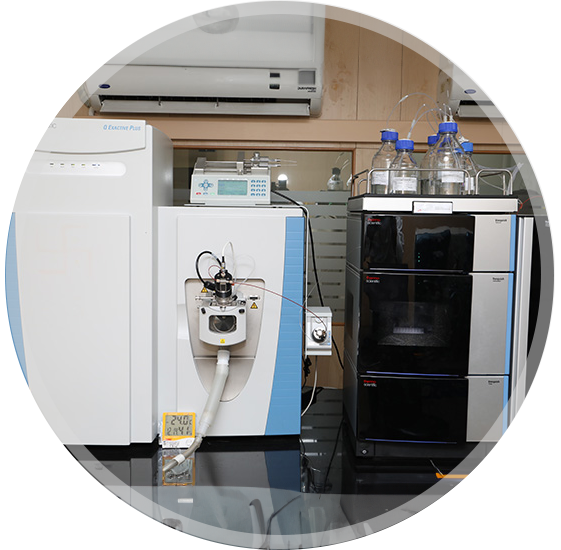Your partner in science for end-to-end CRDMO solutions
Biology Services
ADME DMPK Services
In the realm of drug discovery, Drug Metabolism and Pharmacokinetics (DMPK) plays a pivotal role, serving as the cornerstone in the development of new pharmaceutical compounds. Our primary objective is to facilitate the fine-tuning of novel chemical entities, meticulously orchestrating their properties in relation to vital factors such as gastrointestinal absorption (for orally administered treatments), distribution, clearance, elimination, and the potential for therapeutic efficacy.
Within our DMPK department, we house expertly managed in vitro & in vivo metabolite identification, and pre-formulation groups, led by seasoned scientists with a wealth of experience. Our dedicated teams are poised to navigate drug discovery projects by addressing scientific challenges, proposing pivotal modifications to chemical scaffolds, and steering projects towards their intended path.
By mitigating DMPK-related risks at an early stage, we strive to ensure a rapid and cost-effective journey toward successful drug development.
DMPK Services
At Jubilant, our DMPK technical and research services set the industry standard for excellence, tailored to meet the distinctive requirements of our valued clients. Our dedicated team offers unwavering support for integrated pre-clinical discovery programs and fixed-fee-for-services (FFS) projects, consistently delivering results that are both of exceptional quality and reproducibility, all within rapid turnaround times. We prioritize close collaboration with our clients to comprehensively understand their requirements and expectations with regard to time and cost, ensuring a transparent and tailored approach to every project.
In vitro Services
Our dedicated team specializes in delivering comprehensive in vitro ADME (Absorption, Distribution, Metabolism, and Excretion) services, covering essential aspects such as absorption, distribution, metabolism, and excretion. With a wealth of experience, we provide expert guidance throughout the drug discovery journey, spanning from the initial hit identification phase to lead optimization, and ultimately culminating in the identification of clinical candidates.
Our in-depth in vitro ADME services are designed to provide valuable insights and data that help address potential issues and enhance the efficiency of your drug development endeavors.
Key areas of expertise within our In Vitro ADME services include:
Physiochemical Studies:
- Kinetic solubility assessments
- Thermodynamic solubility in PBS, SGF, SIF
- Chemical stability evaluations
- Early formulation assessments, and more.
In Vitro Metabolism Services:
- Metabolite stability studies using liver microsomes, hepatocytes, rCYPs, and S-9 fractions
- CYP (Cytochrome P450) inhibition studies
- CYP phenotyping and CYP induction using PXR cell lines
- CYP profiling to understand the involvement of CYP enzymes
- Blood/plasma/brain/tissue/microsomal protein binding studies
- Stability assessments in plasma, buffer, blood, and blood/plasma ratio
- GSH (Glutathione) adduct evaluations
- TDl (Therapeutic Dose Index), and more.
- In Vitro Permeability and Transporter Studies:
- PAMPA (Parallel Artificial Membrane Permeability Assay) studies
- MDCK/Caco-2 permeability assessments
- Inhibition and substrate evaluations of P-glycoprotein (P-gp) and BCRP (Breast Cancer Resistance Protein) transporters.
In vivo Services:
Our comprehensive in vivo services encompass a wide spectrum of studies to evaluate the pharmacokinetics of compounds. We conduct pharmacokinetic studies using various administration routes, including oral, intraperitoneal, intravenous, subcutaneous, and more, in a range of species, including mice, rats, rabbits, minipigs and dogs.
Our in vivo services extend to:
- PK Studies: Investigating pharmacokinetics using various administration routes.
- Dose Range Finding Studies: Determining the optimal dosing range for compounds.
- Brain Exposure Studies: Evaluating compound penetration and distribution in the brain.
Additionally, we offer specialized studies, including:
- Tissue Distribution Studies: Investigating the distribution of compounds in different tissues.
- Excretion Studies: Assessing the elimination of compounds from the body.
- Biliary and Urine Excretion Studies: Focusing on biliary and urinary elimination pathways.
Our dedicated DMPK team has published numerous research articles in esteemed peer-reviewed international journals and presented posters at prominent conferences, further demonstrating our commitment to advancing the field of drug metabolism and pharmacokinetics.



